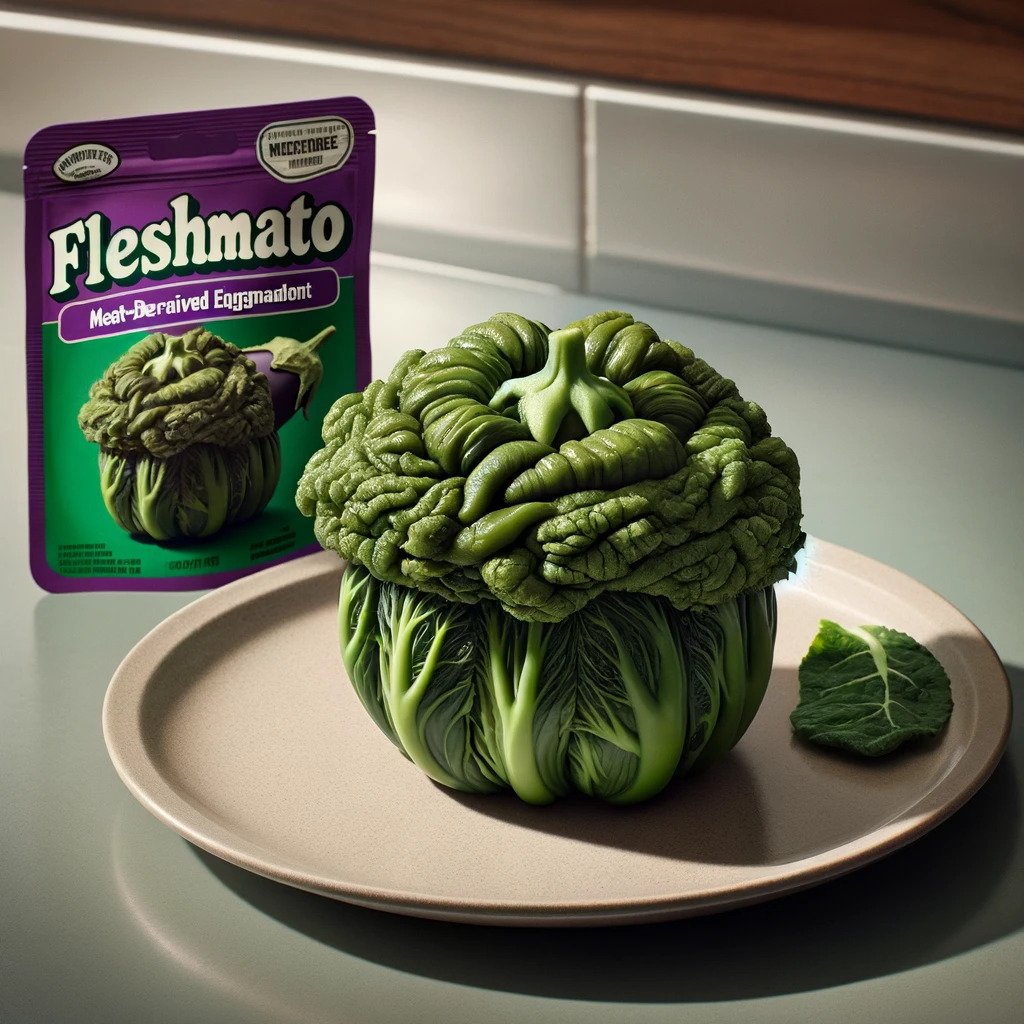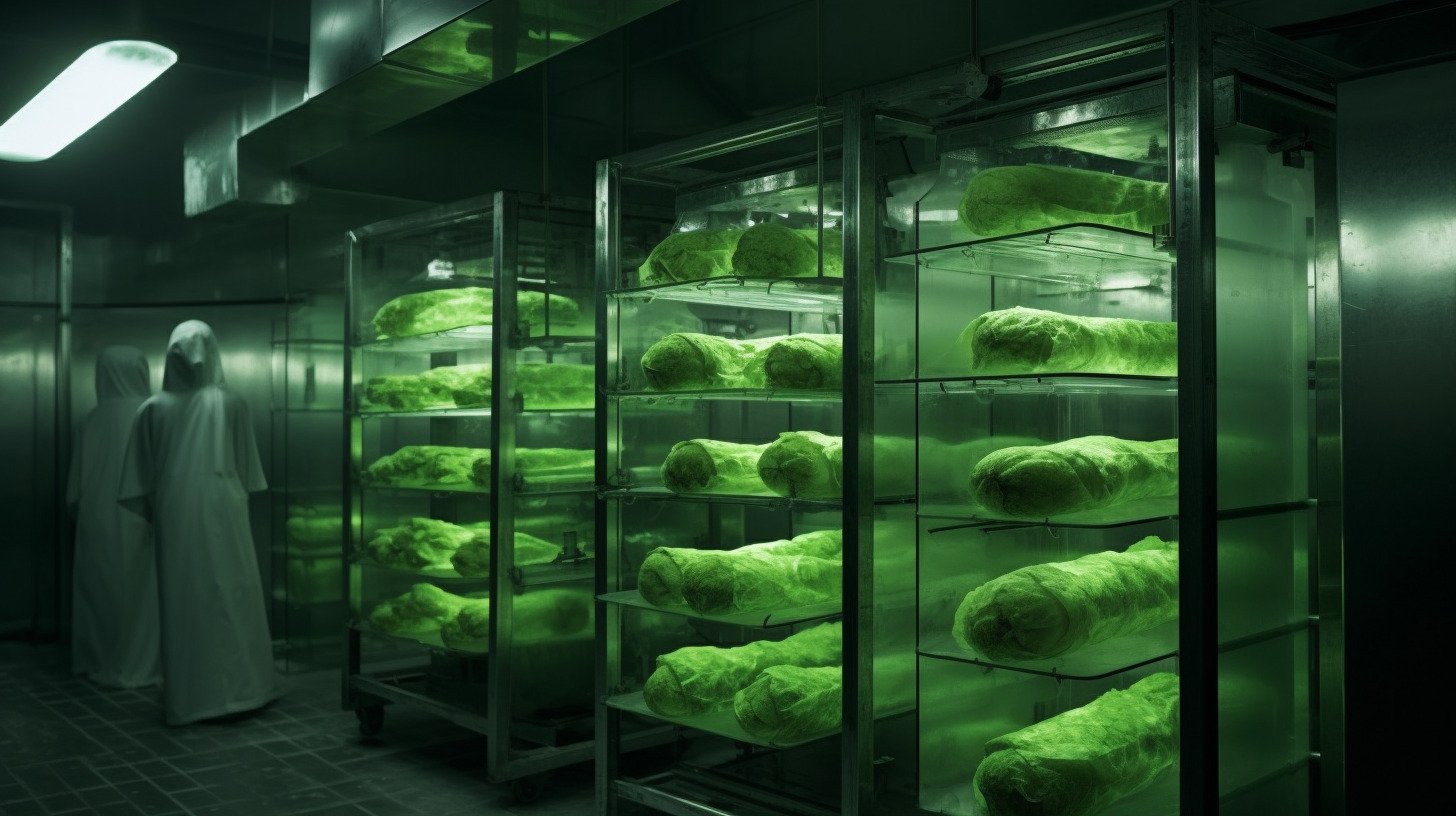In a world where plant-based meats are sprouting up like weeds, one daring biotech firm has decided to swim against the current. “Fleshtable Inc.,” a company that’s as unconventional as its name suggests, has achieved the gastronomical paradox of turning meat into a synthetic vegetable. Their flagship product, “Fleshmato,” is a green-colored, meat-derived ‘vegetable’ that’s challenging everything we thought we knew about food.
“Everybody is rushing to make meat out of veggies. We decided to differentiate ourselves by doing the exact opposite,” declared Fleshtable Inc.’s CEO during the product’s controversial launch. The company’s bold strategy has left many in the food industry bewildered.
Fleshmato, described as having the texture of overcooked eggplant and the taste of disillusionment, boasts a unique selling point: “All of the calories, none of those darned nutrients.” This anti-vegetable is engineered for those who want to say they’re eating their greens without the pesky health benefits that usually come with it.

The product’s distinctive green hue is not the result of food coloring or vegetable content, but rather bile extracted directly from a Giant Panda, a choice that has environmentalists and animal rights activists seeing red. The company assures that the pandas are unharmed and are now the most financially stable bears in the animal kingdom.
Critics have been quick to point out the absurdity of the concept, with one nutritionist commenting, “It’s as if they’re trying to solve a problem that doesn’t exist. It’s the culinary equivalent of a screen door on a submarine.”
The impact of Fleshmato on the market has been as messy as its composition. Traditional vegetarians are appalled, meat-lovers are confused, and the niche group of anti-veggie vegans has finally found their champion.
This development teaches us that in the race to innovate, not all ideas are winners—some are just weird. Fleshtable Inc.’s reverse-engineered foodstuff is a lesson in how the quest to stand out in a saturated market can lead to some truly stomach-turning creations.
Historically, food innovation has been about making the unhealthy healthier. Fleshmato flips this on its head, potentially starting a bizarre new trend where the goal is to make the healthy unhealthy.
In sum, Fleshmato is a reminder of the lengths to which companies will go to be different. It’s a product that asks the question, “Why make bad food good when you can make good food bad?”
Disclaimer: This article is a work of satire. The creation of synthetic vegetables from meat is not a current practice, and pandas are not involved in food production. Please continue to enjoy your greens (and meats) as nature intended.
